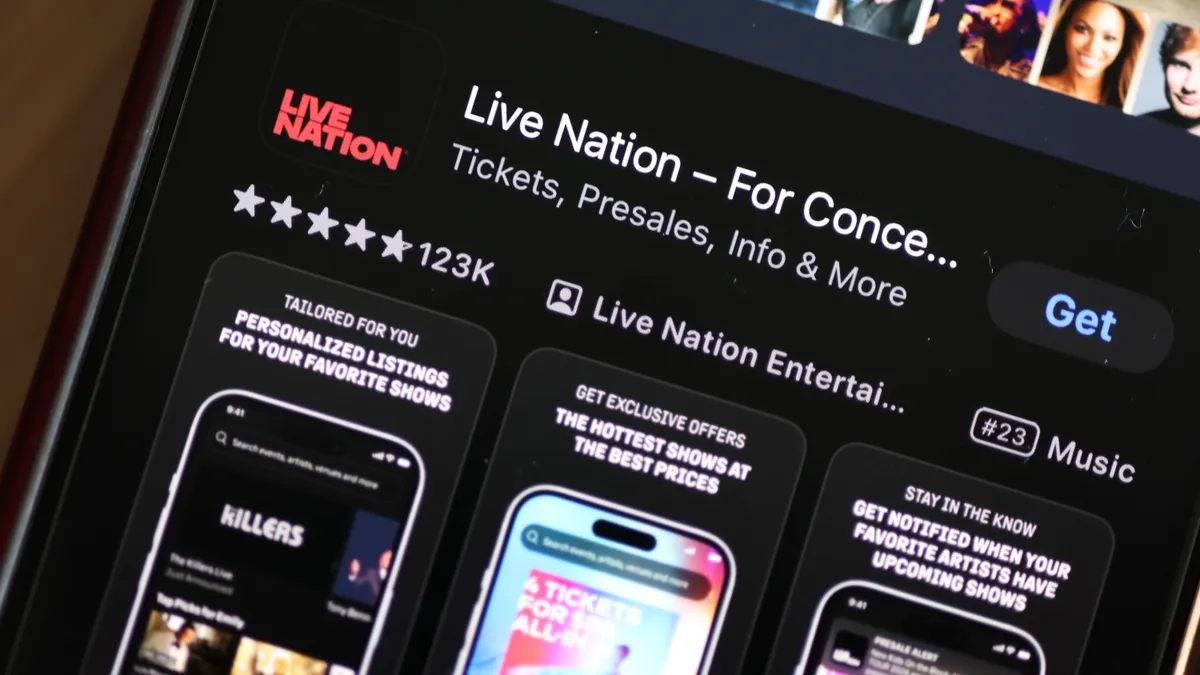Dive Brief:
- Ticketmaster owner Live Nation Entertainment on Friday confirmed that it was the victim of a cyberattack that compromised customer data, characterizing the likely financial impact as immaterial for now.
- In a securities filing, the company said it launched an investigation after discovering "unauthorized activity within a third-party cloud database" environment containing company data on May 20. A week after the discovery, a “criminal threat actor” offered what it alleged to be company user data for sale on the “dark web,” according to the disclosure, which was made in what’s known as an Item 8.01 Form 8-K filing.
- “As of the date of this filing, the incident has not had, and we do not believe it is reasonably likely to have, a material impact on our overall business operations or on our financial condition or results of operations,” the filing said. “We continue to evaluate the risks and our remediation efforts are ongoing.”
Dive Insight:
A proposed class action lawsuit against Live Nation and Ticketmaster alleges that the breach was a direct result of the defendants’ failure to implement “adequate and reasonable” cybersecurity procedures and protocols.
The suit was filed on May 29 in the U.S. District Court for the Central District of California on the heels of news reports saying that a cybercriminal group called ShinyHunters claimed it had stolen personal data belonging to more than 500 million Ticketmaster customers. The group's post said the data was available for purchase for $500,000 in a “one-time sale,” according to a CBS News article.
“This Data Breach occurred because Ticketmaster enabled an unauthorized third party to gain access to and obtain former and current Ticketmaster customers’ Private Information from Ticketmaster’s internal computer systems,” the complaint said.
Under rules adopted by the Securities and Exchange Commission last year, public companies are required to report a “material” cybersecurity incident to the agency in an Item 1.05 Form 8-K within four days of determining the breach is material. The agency recently clarified that the rules aren’t intended for reporting immaterial incidents, although it welcomes such disclosures under a different filing category.
“I recognize the value of such voluntary disclosures to investors, the marketplace, and ultimately to companies, and this statement is not intended to disincentivize companies from making those disclosures,” Erik Gerding, director of the SEC’s Division of Corporation Finance, said in a May 21 statement. “Rather, this statement is intended to encourage the filing of such voluntary disclosures in a manner that does not result in investor confusion or dilute the value of Item 1.05 disclosures regarding material cybersecurity incidents.”
If a company chooses to disclose a breach for which it has not yet made a materiality determination, or one that was determined to not be material, the Division of Corporation Finance encourages the company to disclose that incident under a different item of Form 8-K, such as Item 8.01, Gerding said.












